has a state-of-the-art laboratory facility fully equipped to conduct research and testing in several areas of asphalt technology. The lab is divided into the four main sections shown below. The resources have enabled the asphalt research team to develop a well rounded research program capable of studying multiple areas of asphalt technology at both the applied and basic research levels.
RFM 1225A - Asphalt Lab
PHYSICAL Asphalt Binder Physical Characterization
Dynamic Shear Properties
Creep Stiffness
Direct Tension
Short Term Aging
Long Term Aging
CHEMICAL Asphalt Binder Chemical Characterization
Asphalt Binder Fraction Analysis
Asphalt Binder Extraction and Recovery
Aggregate Aggregate Characterization
Source Aggregate Properties
Aggregate Gradation Analysis
Mix Design Asphalt Mix Design
Asphalt Binder Content
Asphalt Lab Equipment
Rolling Thin Film Oven (RTFO)
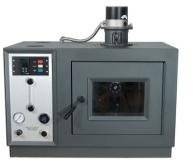
To simulate short-term aging of asphalt binders that occurs during mixing and lay-down of hot mix asphalt.
Pressure Aging Vessel (PAV)
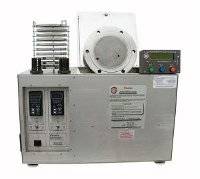
To simulate long-term oxidative aging of asphalt binders.
Gel Permeation Chromatography (GPC)
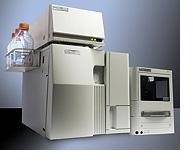
The Gel Permeation Chromatography (GPC) is the technique of choice for rapid and reliable characterization of molecular weight and molecular structure for asphalt binders.
Visco 2000 Viscometer
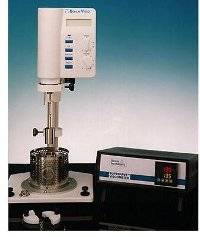
The Visco 2000 viscometer is the newest SHRP asphalt binder testing equipment specifically designed to perform ASTM D4402 high temperature testing of asphalt binder.
Rotational Viscometer

The rotational viscometer measures torque required to rotate a spindle immersed in the sample fluid.
Dynamic viscosity is proportional to this measured torque. This method gives a rapid and reproducible measurement of viscosity and correlates closely with the time-consuming AASHTO T201 method.
Asphalt binder characteristics are measured for ability to be pumped.
Viscosity and temperature information can also be used to estimate mixing and compaction temperatures for paving operations.
Dynamic Shear Rheometer (DSR)
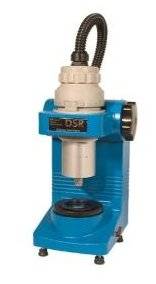
A Dynamic Shear Rheometer (DSR) is essential for Superpave determination of linear viscoelastic properties of aged or unaged asphalt binders (modified or unmodified) in the temperature range of 5-85°C.
Dynamic shear modulus is determined by applying a known torque to oscillate one of the plates and measuring the resulting strain. Phase angle, in radians or degrees difference between sinusoidal stress and strain, is also measured.
Operate the instrument in strain control (measuring resultant stress) or stress control (measuring resultant strain) modes. Easily perform temperature sweep tests for AASHTO R29.
Bending Beam Rheometer (BBR)
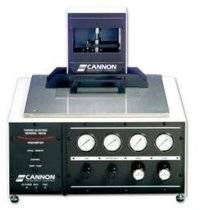
The Bending Beam Rheometer (BBR) measures flexural creep stiffness of asphalt binder at low temperatures (ambient to 40°C).
A constant load is applied to the center of a small asphalt beam specimen, and the deflection of the beam is measured and recorded.
Load, displacement, and bath temperature are displayed and displacement, loading, and temperature graphs are displayed throughout the test cycle.
Stiffness is calculated at the lowest temperature anticipated.
Electronic Mixers and Systems
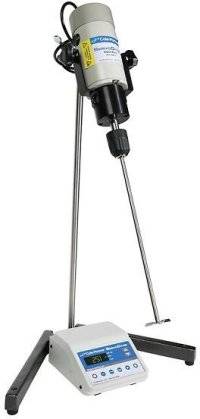
Provide precise control of mixing speed within ±0.2% despite changes in viscosity, temperature, or line voltage.
Superpave Gyratory Compactor (SGC)
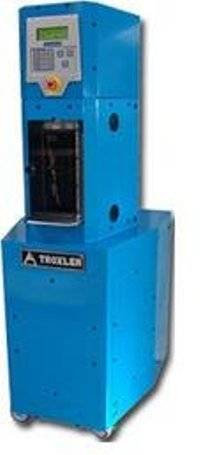
Superpave Gyratory Compactor (SGC)
Simulates the kneading action of rollers used to compact asphalt concrete pavements by applying a vertical load to an asphalt mixture while gyrating a mold tilted at a specified angle. SGC is the new equipment used in volumetric pavement design. Specimens produced by this compactor can be used in the Superpave SST and IDT (AASHTO T312).